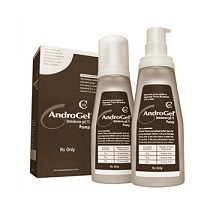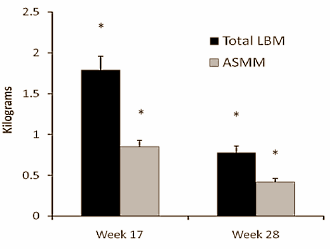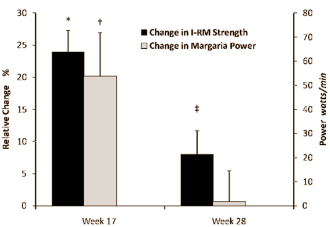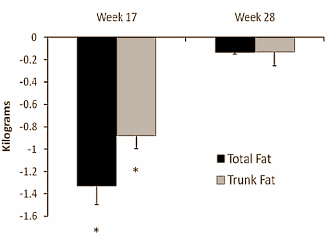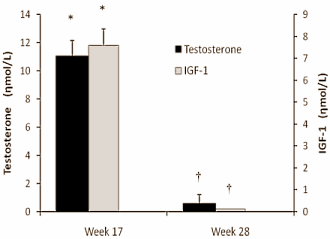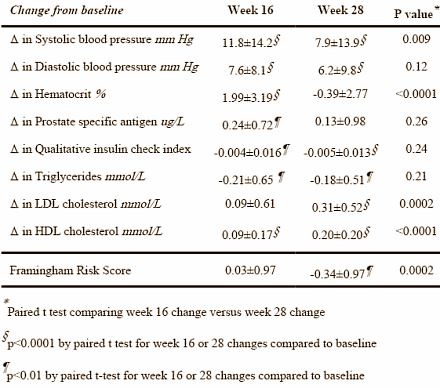|
Definition: "An ergogenic aid is any substance or phenomenon that enhances performance "
|
|
||||||||
12.02.2013 |
|
|
The short-lived effects of an anti-aging course of testosterone and growth hormone
A quarter to a fifth of all men over the age of sixty have so little testosterone in their blood that they are at risk of developing the disease of aging called sarcopenia. [Mech Ageing Dev. 1999; 107(2): 123–136.] That's why researchers are looking at whether administration of testosterone can help the over sixties to maintain strength in their muscles.
The 112 men aged from 65-90 that Fred Sattler of the University of Southern California used for his Hormonal Regulators of Muscle and Metabolism in Aging [HORMA] trial were all healthy, apart form their relatively low levels of testosterone and IGF-1. Sattler got them to rub 5 or 10 g Solvay testosterone gel [testosterone concentration: 1 percent] into their bodies every day for 16 weeks, and to inject themselves every evening with 0.3 or 5 micrograms of Genentech's Nutropin.
Sattler measured the effects of the hormones during the supplementation, but he also looked at what remained of these effects three months after finishing the hormone course. It was nothing to write home about.
Of all lean body mass [Total LBM] that the man had built up during the course [Week 17], only half was left three months later [Week 28]. The same was true for the muscle mass in the limbs [ASMM].
Of the maximal strength that the men had built up [they didn't train by the way] only a third was left three months later. The Margaria Power – in other words the speed with which the men could climb stairs – increased during the supplementation, but none of this was visible three months later.
During the course of supplementation the men lost fat mass, but three months after finishing the course nearly all the fat had returned.
So the positive effects of taking growth hormone and using testosterone gel are not very lasting. The same was fortunately also true for the side effects. Three months after the course had ended the men produced the same amount of testosterone and IGF-1 as they had before the course started. The hormone course didn't have a lasting negative effect on the body's own hormone production.
The figure above shows that blood viscosity increased during the hormone course, but returned to normal after it ended. The same was true for the PSA level, a marker of the likelihood of developing prostate cancer. What happened to the blood pressure and cholesterol levels was less encouraging, although there's no need to exaggerate the effects.
The researchers are above all concerned about the short shelf life of the desirable effects of the hormone administration. "Additional strategies such as nutritional support or exercise may be needed to sustain the gains in muscle mass and strength achieved during short term administration of such combination therapies", they write.
Source:
More:
|
|

